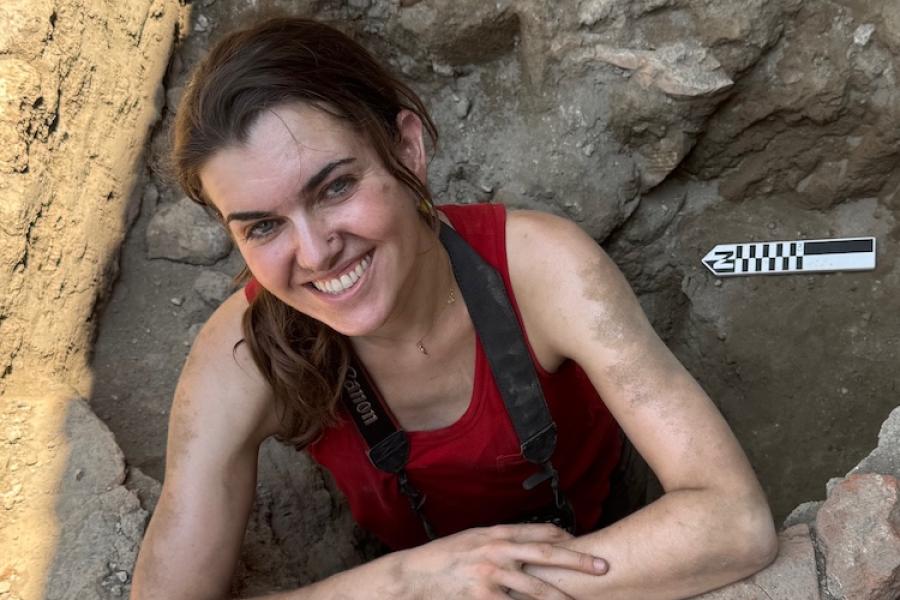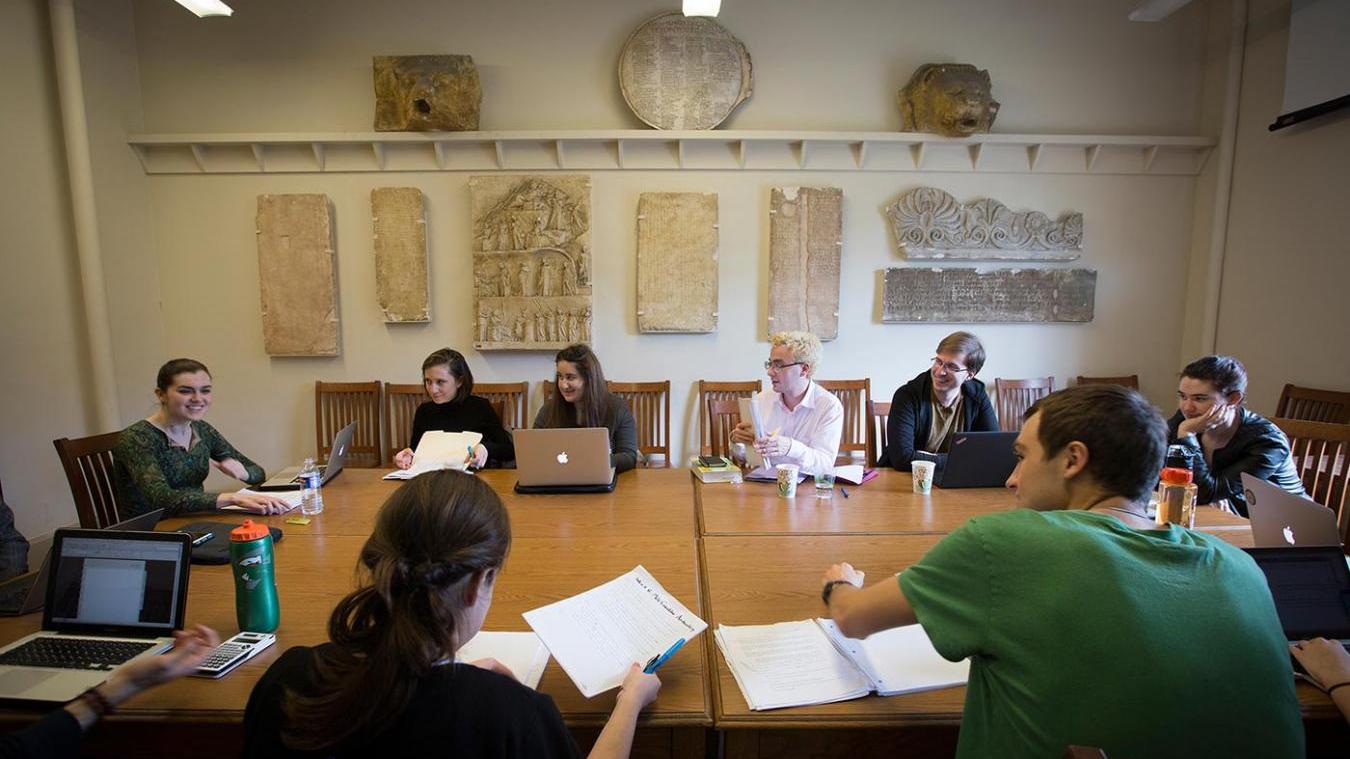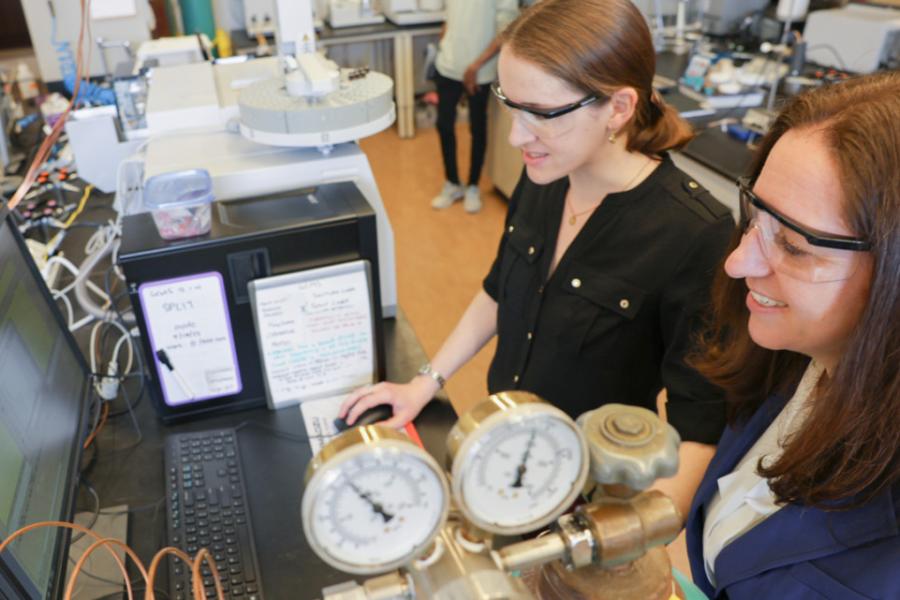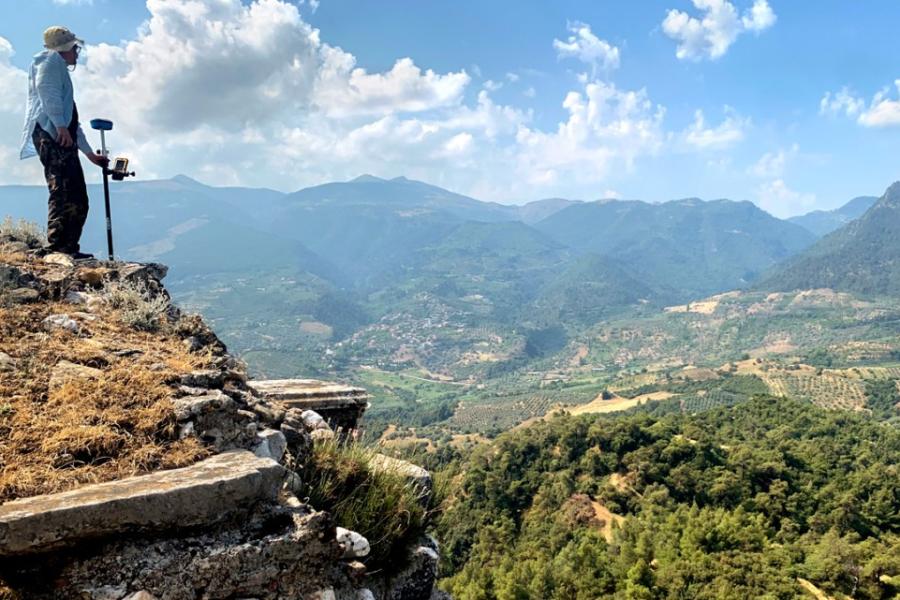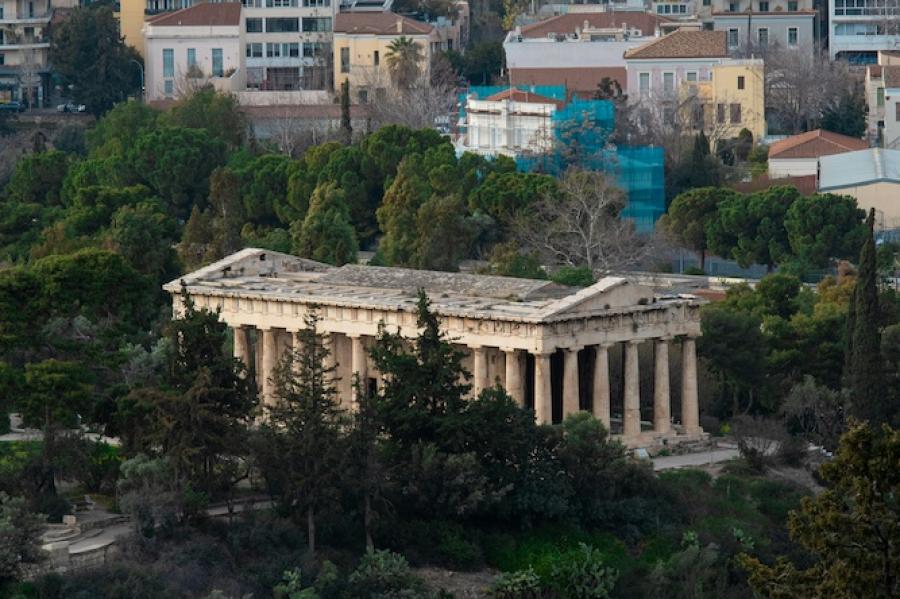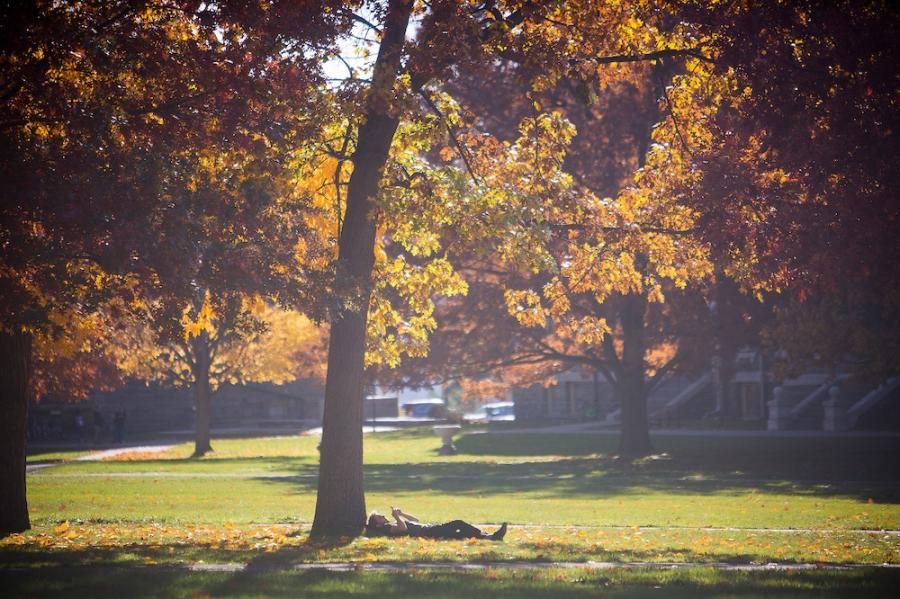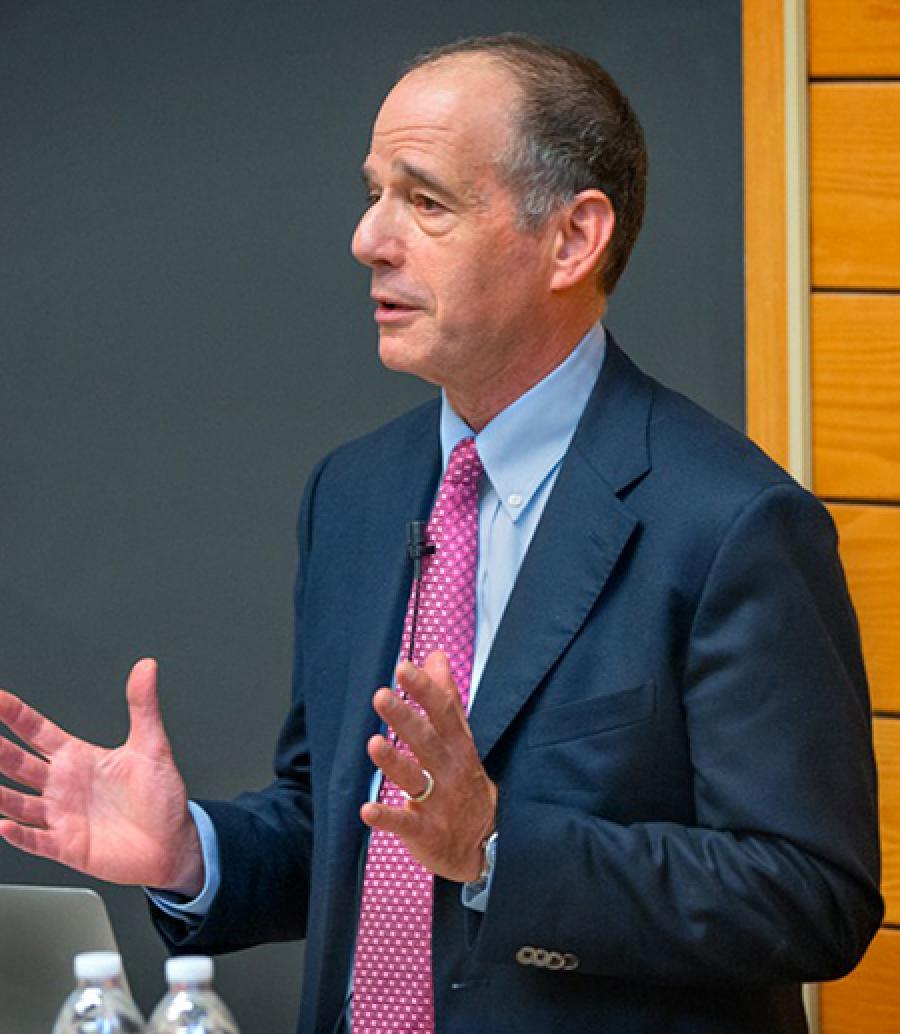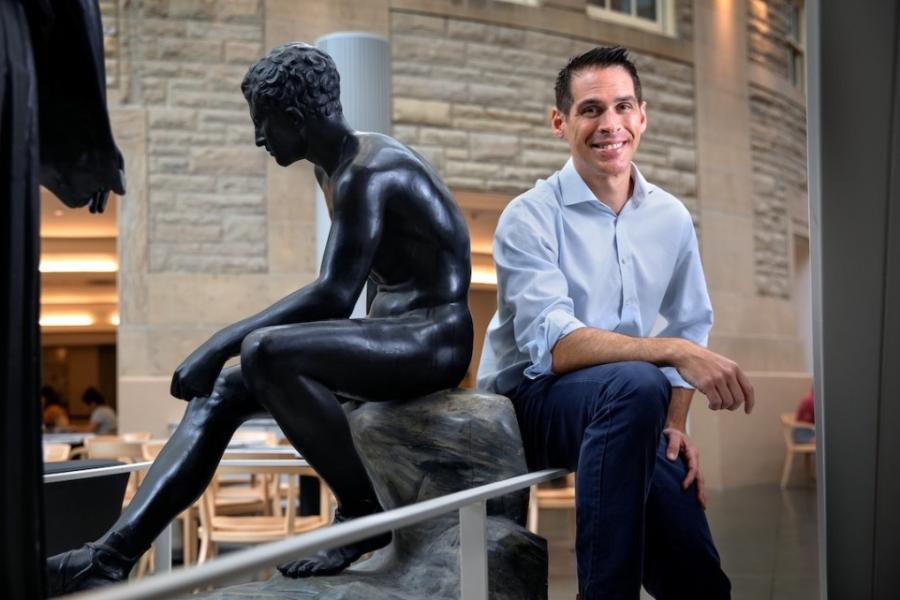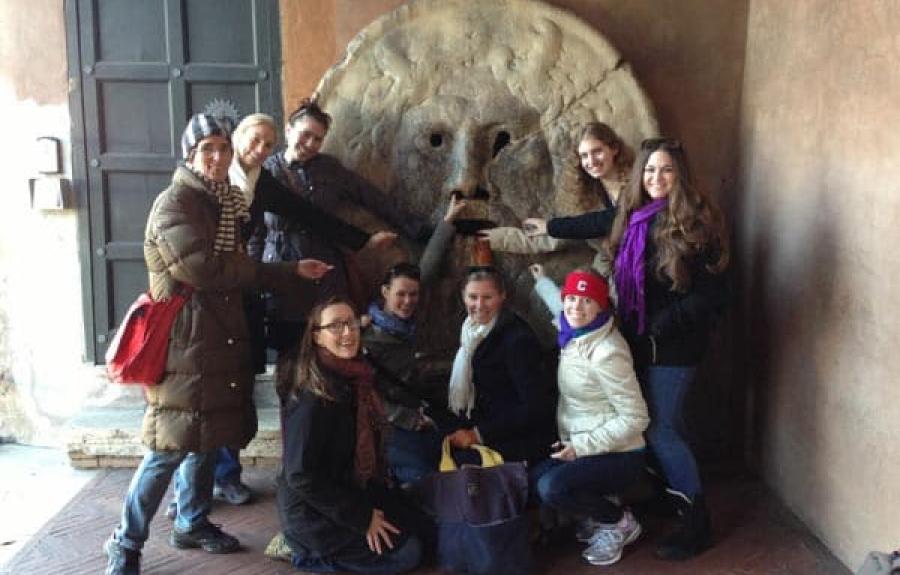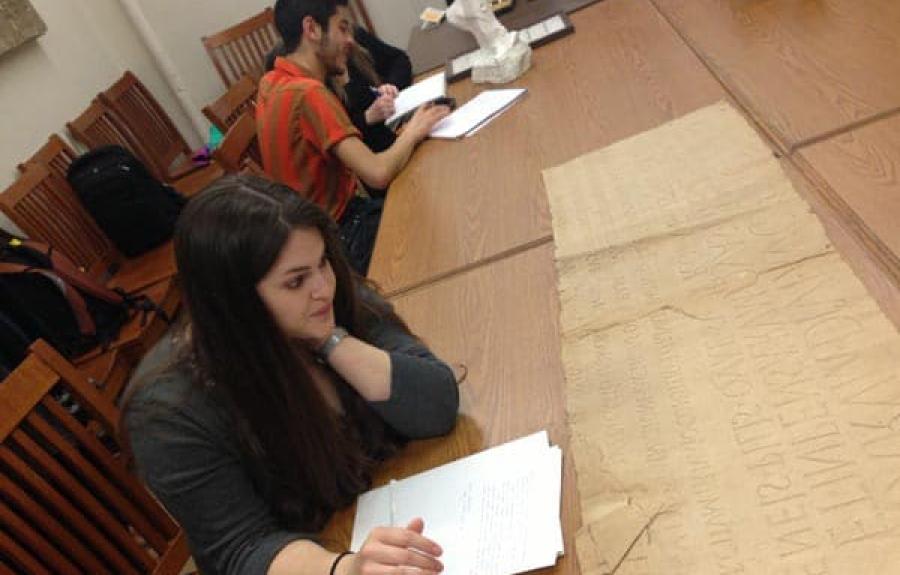Graduate Program
Our doctoral program fully promotes an interdisciplinary approach to the ancient world. We offer all students an opportunity to develop a comprehensive course of study within one of our five concentrations: ancient history, ancient philosophy, classical archaeology and art, classical literature and philology, and Greek and Latin languages and linguistics. We support a strong series of colloquia in which faculty, guest speakers, and graduate students are presented with current work in our field of study.
Classics Graduate Studies Overview
